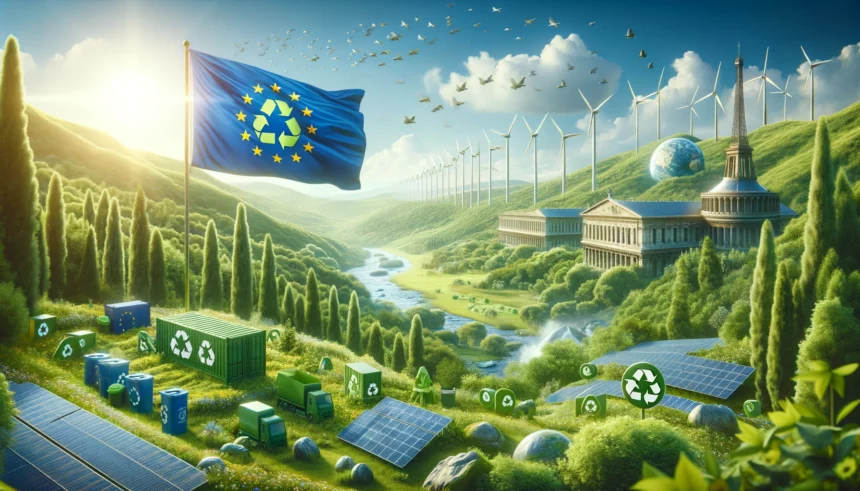In a bold move to combat environmental pollution and reduce the continent’s burgeoning packaging waste problem, the European Union (EU) has finalized an agreement to outlaw single-use plastic packaging across its member states by the end of this decade. The landmark legislation, which aims to make packaging on everyday items more eco-friendly, will see the banning of single-use plastics in fast-food chains, hotels, and even the packaging of fresh fruits and vegetables.
This significant legislation comes as the EU grapples with increasing volumes of packaging waste, which saw a substantial uptick in 2021, marking the largest year-on-year increase in a decade. “This is clearly an historic agreement,” remarked Frédérique Ries, the European Parliament’s rapporteur for the initiative. “We are mobilizing all industrial sectors and member states to partake in this crucial fight against over-packaging, emphasizing the significant role consumers play in this endeavor.”
Under the new rules, by 2030, all packaging in the EU must be fully recyclable, setting the stage for a dramatic overhaul in packaging design and materials used. The legislation also specifies that by 2035, such recyclable packaging must be recycled on a large scale.
A notable feature of the agreement is the obligation for take-away businesses to accommodate customers wishing to use their containers for drinks and prepared foods, further promoting the use of sustainable alternatives over disposable plastics. Additionally, the use of “very lightweight” plastic carrier bags will be phased out.
The ban, part of the EU’s broader environmental aspirations under the Green Deal, aims to reduce packaging waste by 5% by 2030 relative to 2018 levels, with further reductions targeted for 2035 and 2040. “This regulation is pivotal in diminishing waste from packaging, ensuring that our waste management standards are unparalleled,” stated a spokesperson for the Belgian government, which is currently presiding over the EU Council.
Negotiations leading up to this consensus were fraught with intense lobbying from fast-food corporations and the paper industry, with debates centering around the environmental merits of cardboard versus plastic packaging.
The ban is comprehensive, encompassing single-use plastics used in unprocessed fresh fruit and vegetable packaging, individual product portions such as condiments and sugars, miniature hotel toiletries, and shrink-wrap for luggage at airports.
For the first time, the EU is setting concrete targets to cut down on packaging consumption, independent of the material used. This forward-thinking regulation also includes a ban on “forever chemicals” in food-contact packaging, addressing growing health concerns associated with these substances.
With formal approval from member states and the Parliament pending, this legislation marks a significant stride toward a more sustainable and environmentally conscious Europe, setting an example for global efforts to mitigate plastic pollution and protect the planet.















